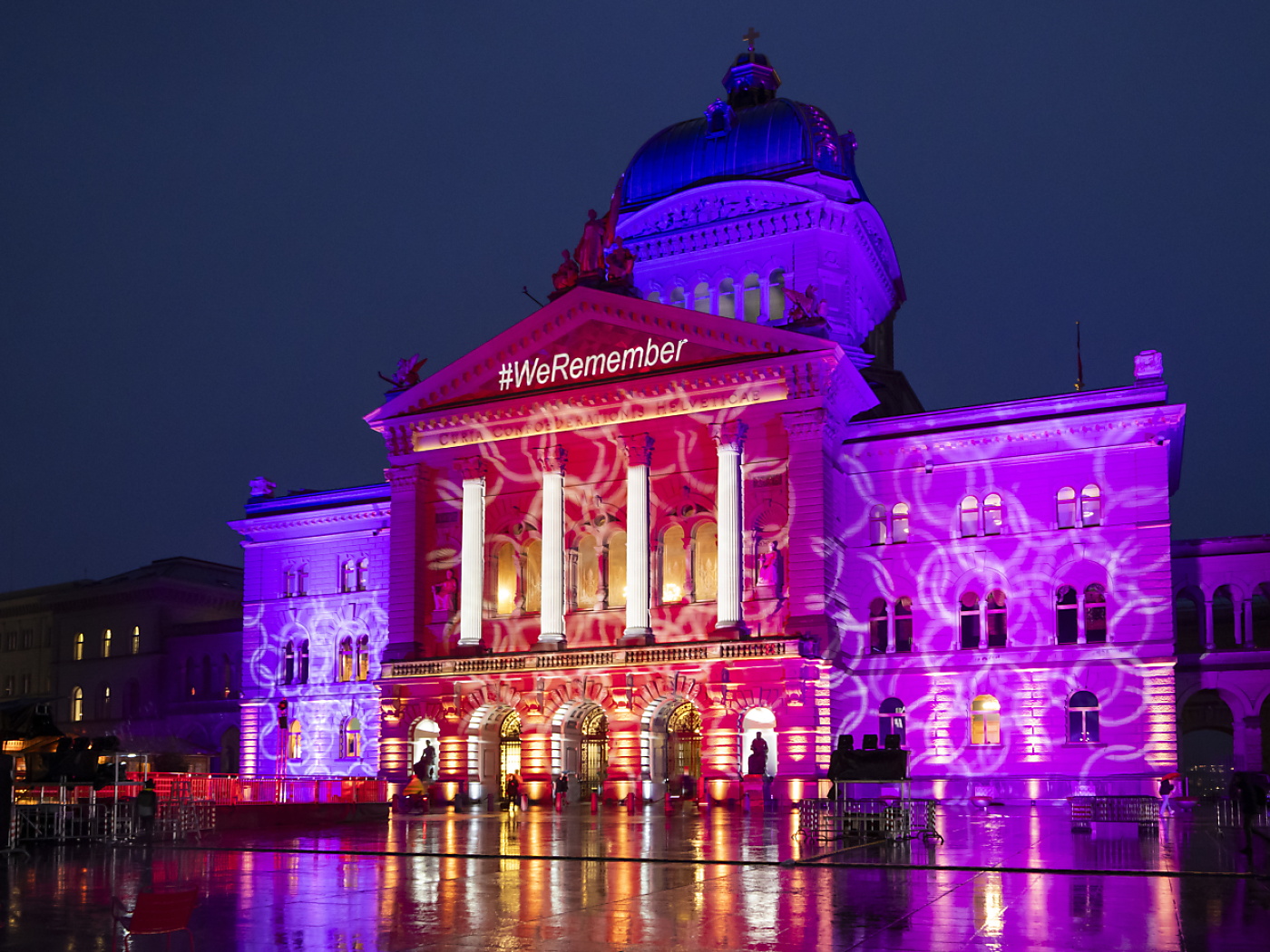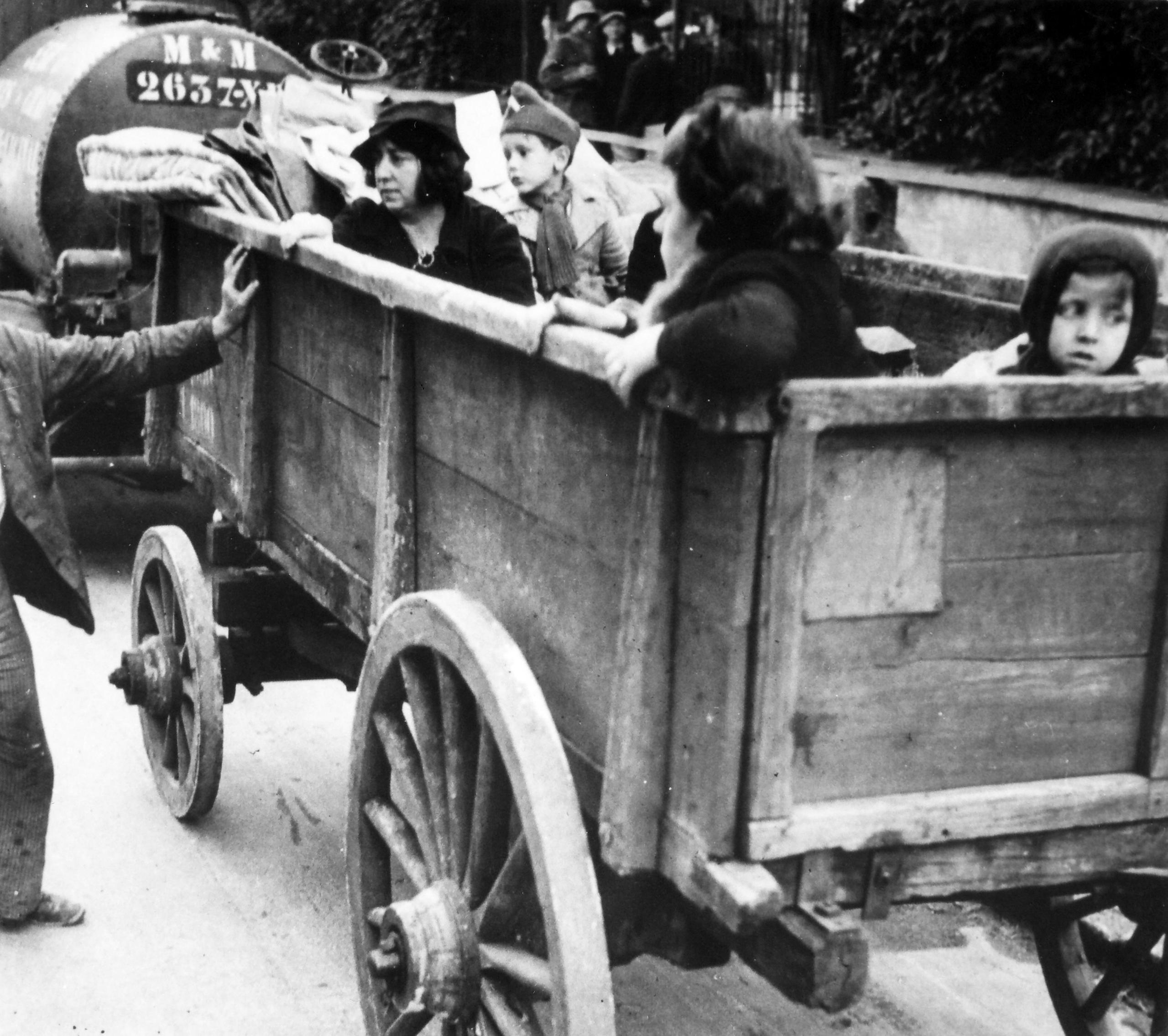
Swiss parliament lights up 80 years after liberation of Auschwitz

To commemorate the liberation of the Auschwitz-Birkenau concentration and extermination camp 80 years ago, the Swiss parliament building in Bern was illuminated in different colours on Monday.
+Get the most important news from Switzerland in your inbox
Up to 1.5 million people, mainly Jews, were murdered in the Nazi-German camp complex in southern Poland.
The arrival of Soviet soldiers in Auschwitz on January 27, 1945, and the subsequent liberation of the murder factory was commemorated worldwide on Monday. Heads of state and government from numerous countries were present at the commemoration ceremony at the site of the genocide 60 kilometres west of Krakow, including Finance Minister Karin Keller-Sutter, who holds the rotating Swiss presidency this year.
+ Swiss president decries anti-Semitism during Auschwitz liberation ceremony
In a message published on Monday, Keller-Sutter expressed her shock at the resurgence of anti-Semitism in many places, including Switzerland. “That is why we must emphasise again and again with determination: we will not tolerate our Jewish fellow citizens being intimidated or discriminated against or even experiencing violence,” she said.
In Switzerland, numerous public buildings were illuminated on Monday evening to commemorate the liberation of the Auschwitz-Birkenau concentration and extermination camp. Public and state authorities abroad also took part in the campaign. In Berlin, the Brandenburg Gate was illuminated.
The Swiss events are part of the global #WeRemember campaign, as announced in advance by the Swiss Federation of Jewish Communities (SIG) and the Platform of Liberal Jews in Switzerland. The World Jewish Congress supported the campaign.

More
‘The boat is full’: 75 years later
Translated from German by DeepL/ts
This news story has been written and carefully fact-checked by an external editorial team. At SWI swissinfo.ch we select the most relevant news for an international audience and use automatic translation tools such as DeepL to translate it into English. Providing you with automatically translated news gives us the time to write more in-depth articles.
If you want to know more about how we work, have a look here, if you want to learn more about how we use technology, click here, and if you have feedback on this news story please write to english@swissinfo.ch.

In compliance with the JTI standards
More: SWI swissinfo.ch certified by the Journalism Trust Initiative

























You can find an overview of ongoing debates with our journalists here . Please join us!
If you want to start a conversation about a topic raised in this article or want to report factual errors, email us at english@swissinfo.ch.